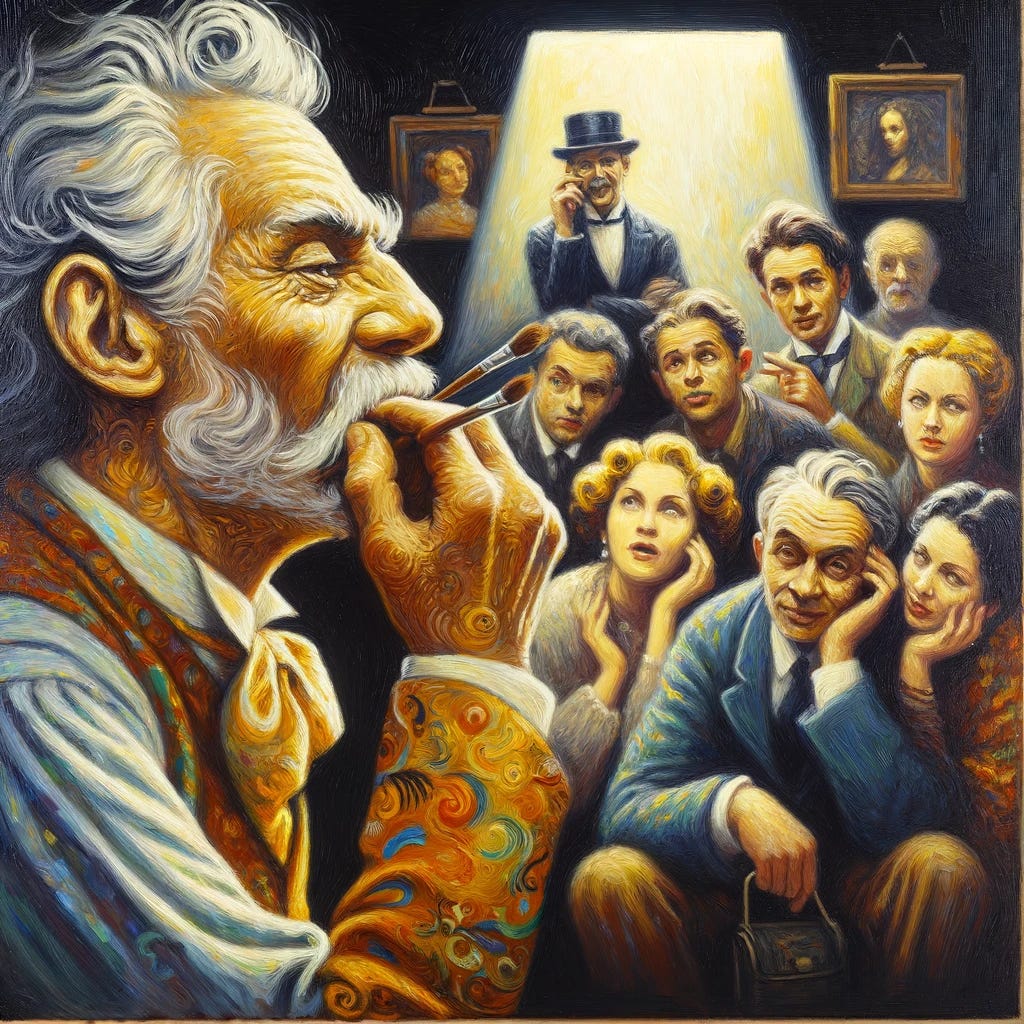Whisper Network in the Artist’s Own Family
Let's workshop this poem about the strangling undercurrents, in the form of a familial whisper network, that function to harm a rising star under the all-too-thin veneer of helping her.
Whisper Network in the Artist’s Own Family Interpreting the intrusiveness as a sign of its truth, he cannot stop thinking she is out to outshine him even as she talks about the weather (or not at all); even as she plays with little ones in another room— moves she makes too often to quiet such thinking, which is as palpable to her as its effect of twisting family visits into tense events full of book references (“What do you make of Sapolsky’s views on stress?”) and where her standing (due to SI joint pain) is met with offense unhidden by joking tones: “Can’t sit with us? A PhD makes you too good for us now?” Impotent as well to crack the code of her complexity and gravitas (to “figure her out,” which for him is code for figuring out how to win her admiration and thereby neutralize the perceived threat posed by her artistic brilliance), the mounting frustration finds its cliché release in the self-cloaked sabotage, yes, of gossip. As her Lincoln Log laughter leaks in from the playroom, he sows his seeds of suspicion in flagrant projection of his own trouble (“Is Melinda going through any trouble?”). He tests (well, spikes) the waters deeper and deeper, giving free hits out to gather partners feeling similarly overshadowed— or more likely, simply craving the diversion of drama. Soon enough an organically vetted hypnosis chamber forms around dinner tables of “worry about Melinda” (“her choice in friends,” “her disturbing paintings”; how “she needs to be the smartest in the room,” how “she doesn’t look like she’s getting much sleep,” how “she speaks so fast like she’s got a problem,” how “in college I think she went to a crisis center,” how “she drank so much last time she was here,” how “each time she’s here she slinks off to play with the children like she’s got something to hide,” how “staying away from everyone’s a bad bad sign,” how “no one engages with her twisted paintings and yet she won’t take the hint”)—“deep concerns” that, eventually oozing out from the circle massage (say, during holiday get-togethers or perhaps even in an “intervention”), just might with luck provoke her defensiveness and “outbursts” and “behaviors” (like, sweetest of the non-criminal options, “insane” screams about what they are up to): reactions perfect for enlisting more weavers of the damning narrative while also letting the bubble’s cord stretch further from its bitter placenta (reactions perfect, in effect, for decreasing the decibel of the midnight divinity that tells each from within “Your care is but a guise”).






